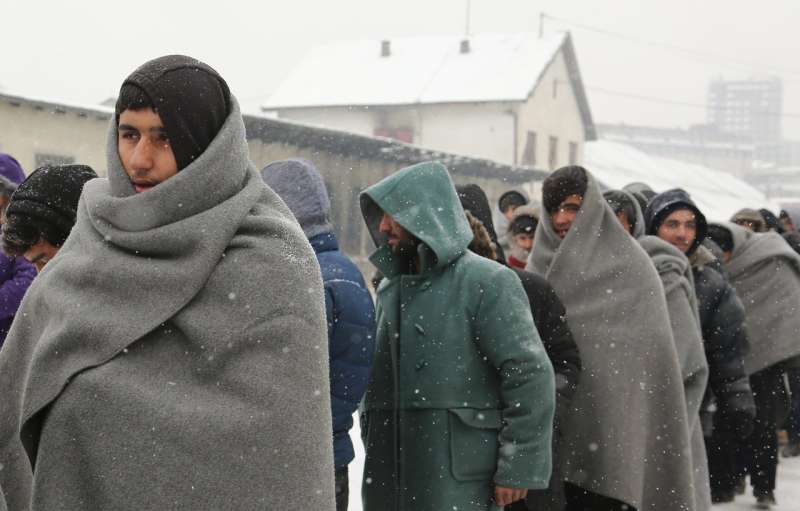Researcher discusses the trauma of war on survivors

Dr. Ayesha Ahmad is a lecturer in Global Health at the university with a Ph.D. in ethics where she has developed and leads on three modules, Humanitarian Action and Ethics, Culture and Mental Health, and Global Health Humanities.
She is also Honorary Lecturer at the Institute for Global Health, UCL, and guest lecturer in Transcultural Psychiatry at Queen Mary University London. Her areas of specialisation are trauma and gender-based violence during conflict and extreme settings with a particular interest in Afghanistan and the Middle East.
She is co-investigator on a Medical Research Council/ Arts and Humanities Research Council funded project called "Narrative therapies for responding to gender-based violence against women in extreme settings."
Could you describe your recent work on the traumatic effect of war?
I have been looking at the impact of the long Afghanistan war on the people who have endured it and felt it most. Those displaced or in mourning for their loved ones. For the people of Afghanistan, entire generations and legacies are woven through this conflict and it is really an act of torture.
How did you find working in such an environment?
As a global health academic, I specialise in mental health, trauma, and conflict especially in extreme settings of high prevalence of gender-based violence. Afghanistan has suffered greatly for a long period of time and there are grave mental health needs. I feel it is important to use my expertise and resources to try to address health inequalities and injustice in this region.
The war in Afghanistan has shown a deliberate, calculated, and de-humanised part of human nature. Lives are being taken; targeted based of identity and the sheer act of living a daily free life is punished. There is no immunity from war. Civilians, journalists, humanitarian and health care professionals are on the frontline of seeing bodies twisted into corpses.
The collective experience of impending death is an overlooked aspect of the lived experience of war.
How does this relate to your academic work?
The concept of suffering is all too apparent to many people but trauma is an artificial construct describing a medicalised version of what happens when our trust in the world around us is ruptured or destroyed.
Working cross-culturally, I often observe different perspectives and meanings related to health and illness, as well as different understandings for why suffering exists and how to respond to it.
Psychologists and psychiatrists typically treat people who are recovering from war. In a country like Afghanistan that has a near to non-existent mental health infrastructure, there is little chance to receive trauma therapeutic treatment during the time of trauma. Trauma ends up being a retrospective experience.
The phenomenon of war is of the land but also beyond the land. Rarely do I hear Kabul referred to without the endearments of 'grana Kabul Jan." The land is personified, the body of home and history. For the Afghan refugee diaspora around the globe, the land is even more poignant. Every attack fractures the soil further, takes away buildings that reminded people of their childhoods or that stood bold in their memories of home that they carry to remember.
Could you explain how war effects people?
On a visceral level, war is felt; the time that travels between traumatic events is un-felt, un-seen and un-heard. Instead, war finds its way into every pore of the senses and is carried by the body. The body is the land and the body breaks every-time the land is shattered. As the exhaustion and fatigue from destruction and death is exhaled, the sigh is shared amongst those near and far. The trauma is an intricate web that binds those within it until its patterns turn to chaos.
What is your view of war after studying its effects?
I have insight from my work and personal exposure from my international experience to the effects of conflict and from persons directly affected by conflict of the intense suffering and transgenerational impact of losing life and land because of war.
Futures are stolen forever because of the way that war takes away from people.
War is the antithesis of creation. All what war reveals has no natural bearing on the flourishing of human life from birth unto death. The impact of war on living is intolerable and incompatible with life.
What is the impact on those of those who have lived through war?
The expectation to talk about trauma, then, is absurd for it is absurdity that war captures. Yet, the presence of war is a landscape of trauma and is lived both privately and shared.
Wounds that are bleeding and words that are beyond comprehension leave behind an invisible blood. There is no time to bleed. Life does not stop; life must be lived. And the suffering is buried deeper and deeper into a grave that is never left, but carried within.
Living in war is a dangerous relationship between life and death. The only anecdote and healing from war's landscape of trauma, ultimately, is peace.
More information: Dr. Ayesha Ahmad is on Twitter: @AcademicAyesha
















